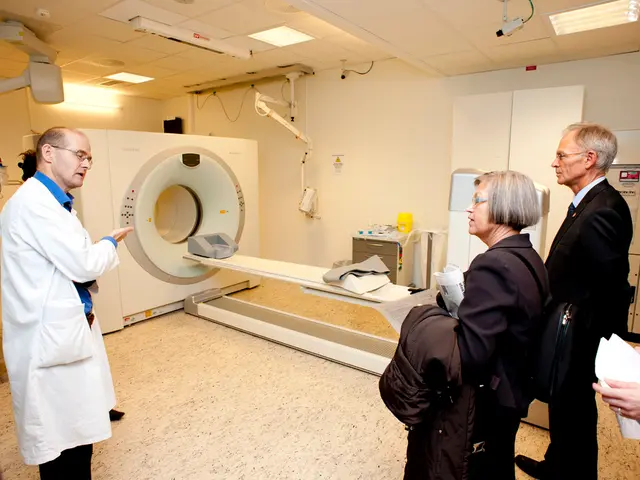The throbbing thrill and the chilling fear of psychedelic substances
Tony Bossis, an esteemed researcher affiliated with the NYU School of Medicine, has made significant strides in the field of psychedelic research. His work is particularly focused on understanding the connections between mystical experiences in great religions and psychedelic experiences.
In 2016, Bossis led a landmark study that was a significant milestone in the field. This study, which focused on the use of psilocybin to reduce stress in cancer patients, demonstrated profound stress reduction after a single dose. However, it represents only one aspect of Bossis' extensive body of work.
Bossis' research interests extend beyond the medical applications of psychedelics. He is deeply engaged in exploring the spiritual and mystical aspects of these substances. His current research focuses on the therapeutic use of psychedelics, particularly psilocybin, for treating mental health conditions such as depression and demoralization syndrome, with a notable emphasis on cancer patients. He is actively investigating the role of psychedelics in reducing hopelessness and demoralization in this population.
Recent findings from Bossis' research include studies demonstrating that guided psilocybin sessions, often combined with psychotherapy, can produce long-lasting improvements in mood, spiritual life, and emotional well-being not only in general populations but also in clergy members from various religions. These findings suggest a strong connection between psychedelic experiences and enhanced mystical/spiritual engagement.
Another focus of Bossis' research is the use of psychedelics to reduce demoralization syndrome—a condition related to hopelessness often seen in cancer patients. This aligns with Bossis' clinical interests in palliative care and psycho-oncology.
Bossis continues to be fascinated by the mystical experiences of great religions. His research at the NYU School of Medicine is not limited to cancer patients, as the 2016 study was a specific case. Instead, he is mapping mystical experiences in great religions onto psychedelic experiences, a continuation of his long-standing interest in the subject.
It is important to note that Bossis' research does not focus on the development of new psychedelic drugs. Instead, he is concerned with understanding their effects and implications. At present, he is not leading any new studies related to psychedelics and their effects on cancer patients.
Bossis has shared his findings and insights in public presentations such as the 2023 New York Academy of Sciences talk titled “Explorations in Consciousness: Death, Psychedelics, and Mystical Experience,” where he discussed intersections of psychedelic-induced consciousness changes and mystical experiences comparable to those found in major religions.
In summary, Tony Bossis' research at the NYU School of Medicine is pushing boundaries in the understanding of psychedelics, their therapeutic potential, and their spiritual and mystical implications. His work underscores the importance of exploring these substances not only for their potential to alleviate psychological stress but also for their ability to deepen our understanding of spiritual and mystical experiences.
- Tony Bossis' ongoing research at the NYU School of Medicine delves into the therapeutic use of psychedelics, particularly psilocybin, for treating various mental health conditions such as depression and demoralization syndrome, with a notable emphasis on mental-health.
- Recent findings from Bossis' research, including studies on guided psilocybin sessions combined with psychotherapy, suggest a strong connection between psychedelic experiences and enhanced mystical/spiritual engagement in both general populations and health-and-wellness professionals, such as clergy members from different religions.




